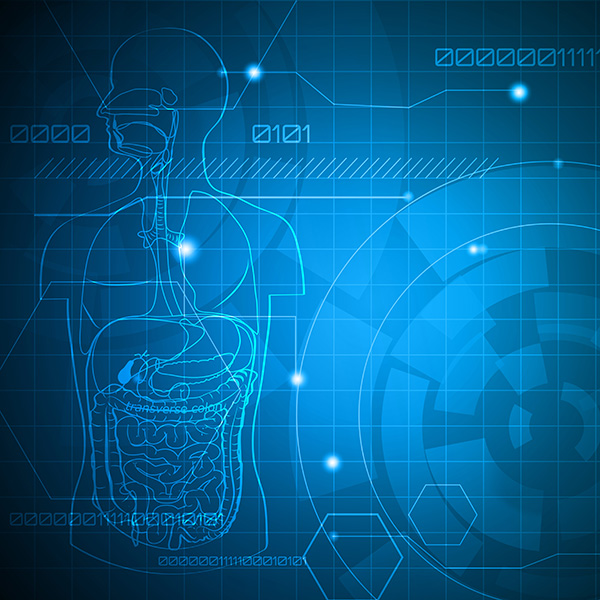
Experts told how to treat patients with gastrointestinal symptoms
30.03.2020
Modern treatment of common diseases of the gastrointestinal tract includes changing the patient’s habitual lifestyle and nutrition, as well as the use of special medicines aimed at eliminating the root cause of the disease and eliminating its symptoms.
These and other questions were discussed by experts at the 116th spring session of the National School of Gastroenterology and Hepatology, organized by the Russian gastroenterological association (RGA). Modern medicines can completely prevent the development of many diseases associated with gastrointestinal dysfunction, according to participants in the satellite symposium “Recommendations for the treatment of patients with a frequent combination of gastrointestinal symptoms”, organized by Valenta Pharm company.
Head of the microbiological laboratory of Moscow State University M.V. Lomonosov Andrey Shestakov noted the important relationship of the microbiome with genetics: bacteria in the human organism perform energetic, nutritional, protective functions, have an anticarcinogenic effect, and also participate in the synthesis and supply B vitamins to the organism: “The decisive importance of bacteria for the human organism is difficult to overestimate. Of course, you need to maintain your microbiome: a relatively healthy person needs enough diet, with a disease, probiotic products are needed,” - says A.Shestakov.
Intestinal infection is one of the important etiological causes of IBS, according to MD, the head of the Department of Therapy and Clinical Pharmacology of North-West State Medical University. I.I. Mechnikova, head physician of St. Petersburg Vladimir Simanenkov: “According to studies, up to 36% of IBS cases can develop after an acute intestinal infection. It was noted that in a patient with risk factors for IBS, pathogenic microorganisms in the quantitative composition of the intestinal microflora can provoke the development of the syndrome of increased permeability of the mucosa and subclinical inflammation at the mucosa level”.The expert demonstrated the synergistic effect of the joint use of a probiotic (Florasan-D) and a regulator of motility of trimebutin (Trimedat).
MD, professor, Head of the Department of Physiology of Visceral Systems K.M. Bykov Institute of Experimental Medicine (IEM) of St. Petersburg Konstantin Shemerovsky presented the results of clinical analysis of a patient with chronic constipation and food intolerance. The lecturer noted that constipation is often not paid attention to and the disease turns into a chronic form: “In this situation, doctors need to switch to osmotic laxative therapy based on lactitol (Exportal), as the most effective and safe drug in their group,” - says the specialist. The expert also considers it necessary to use the enzyme alpha-galactosidase (Orlix®) for bloating, which is often observed with a change in diet.
MD, professor, head of the laboratory for studies of the motor function of the gastrointestinal tract of the Clinic for Propaedeutics of Internal Diseases, Gastroenterology, Hepatology named after V.Kh. Vasilenko First Moscow State Medical University. THEM. Sechenova Alexander Trukhmanov spoke about the negative impact of biliary pain on the quality of life of patients with functional disorders of the gastrointestinal tract. The expert noted that functional biliary pathology is often accompanied by a discharge of the contents of the duodenum into the stomach, which leads to the so-called reflux gastritis and an increased risk of developing gastric oncology. “The combination of Antareit, a non-absorbable antacid with a pronounced adsorbing effect on bile acids and trimebutin maleate (Trimedat), has an antispasmodic or prokinetic effect and relieves the patient from pain. In addition, now patients can receive trimebutin in a more convenient form - Trimedat Forte 300 mg is enough to take only twice a day - in the morning and in the evening,” - the expert notes.
Over 700 gastroenterologists, endoscopists and representatives of related specialties took part in the symposium. The symposium was headed by Academician of the Russian Academy of Sciences Professor Vladimir Ivashkin.
The 116th Spring International Session of the National School of Gastroenterology, Hepatology, RGA is a leading scientific event, which annually gathers on its site specialists in the treatment of gastrointestinal diseases from around the world. Particular attention was paid to the work of the heart and gastrointestinal tract, Crohn's disease and ulcerative colitis, as well as the role of the elements of the Mendeleev table in the human organism in good condition and with pathologies.
